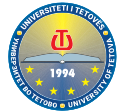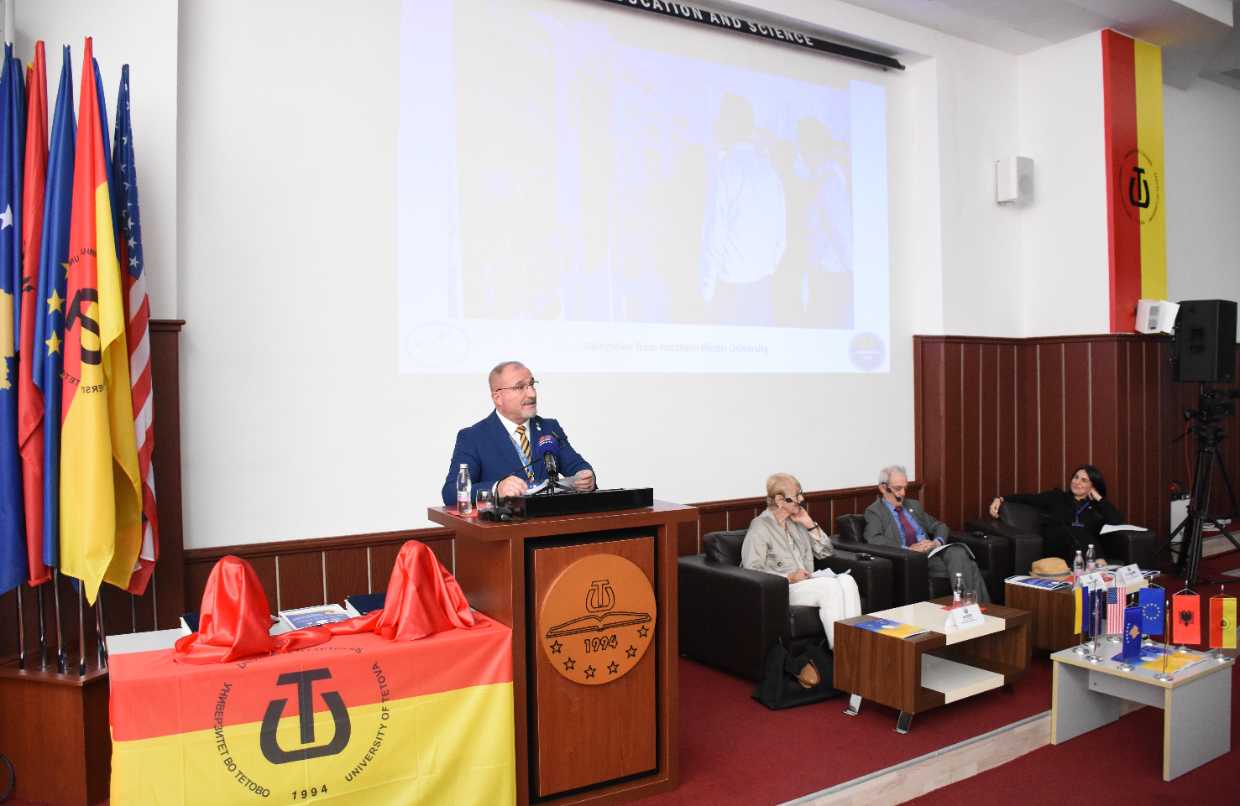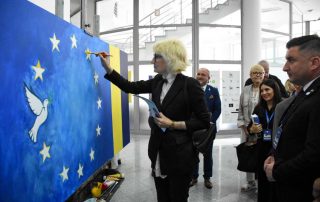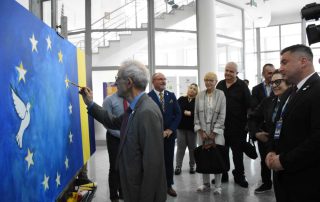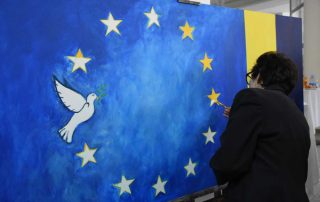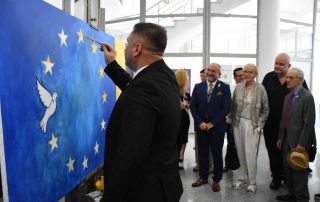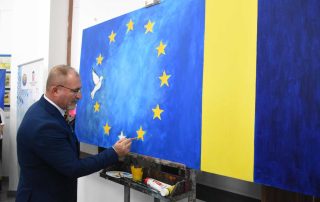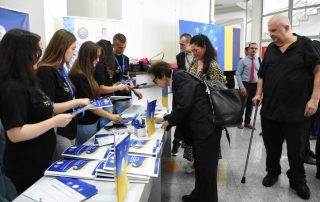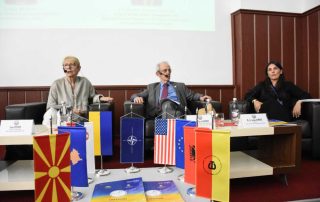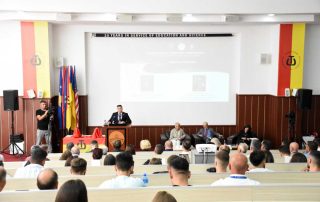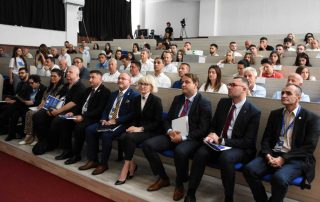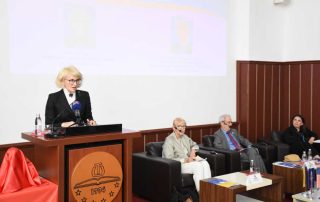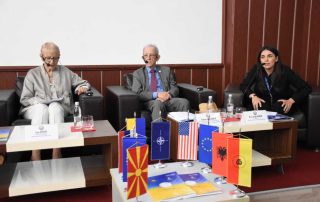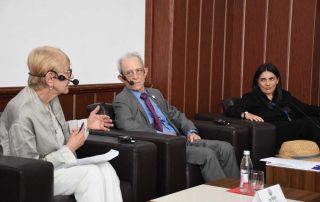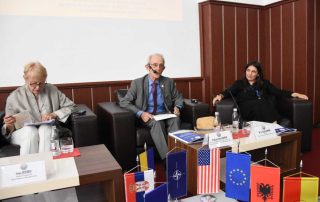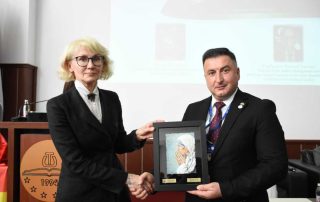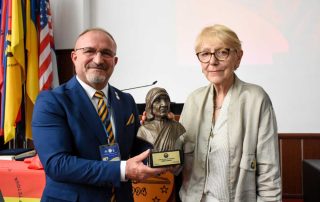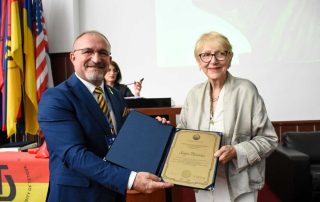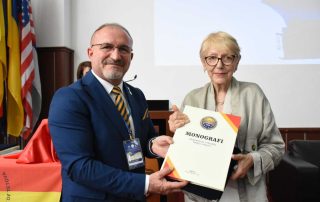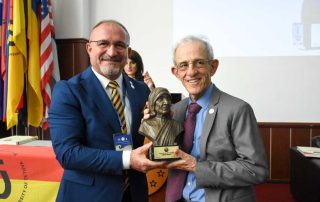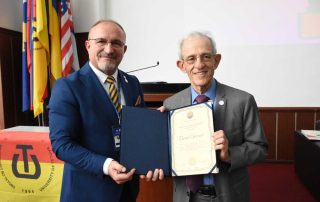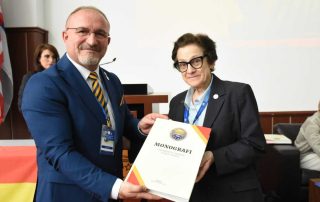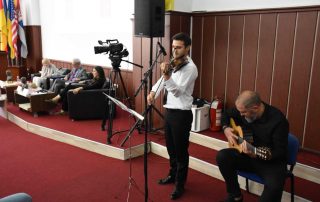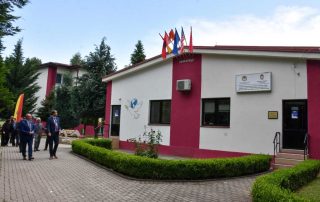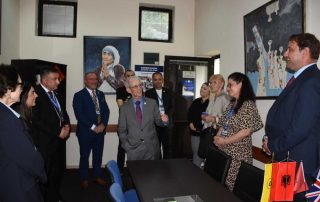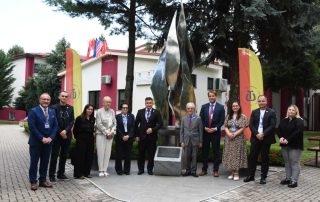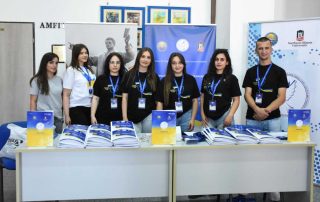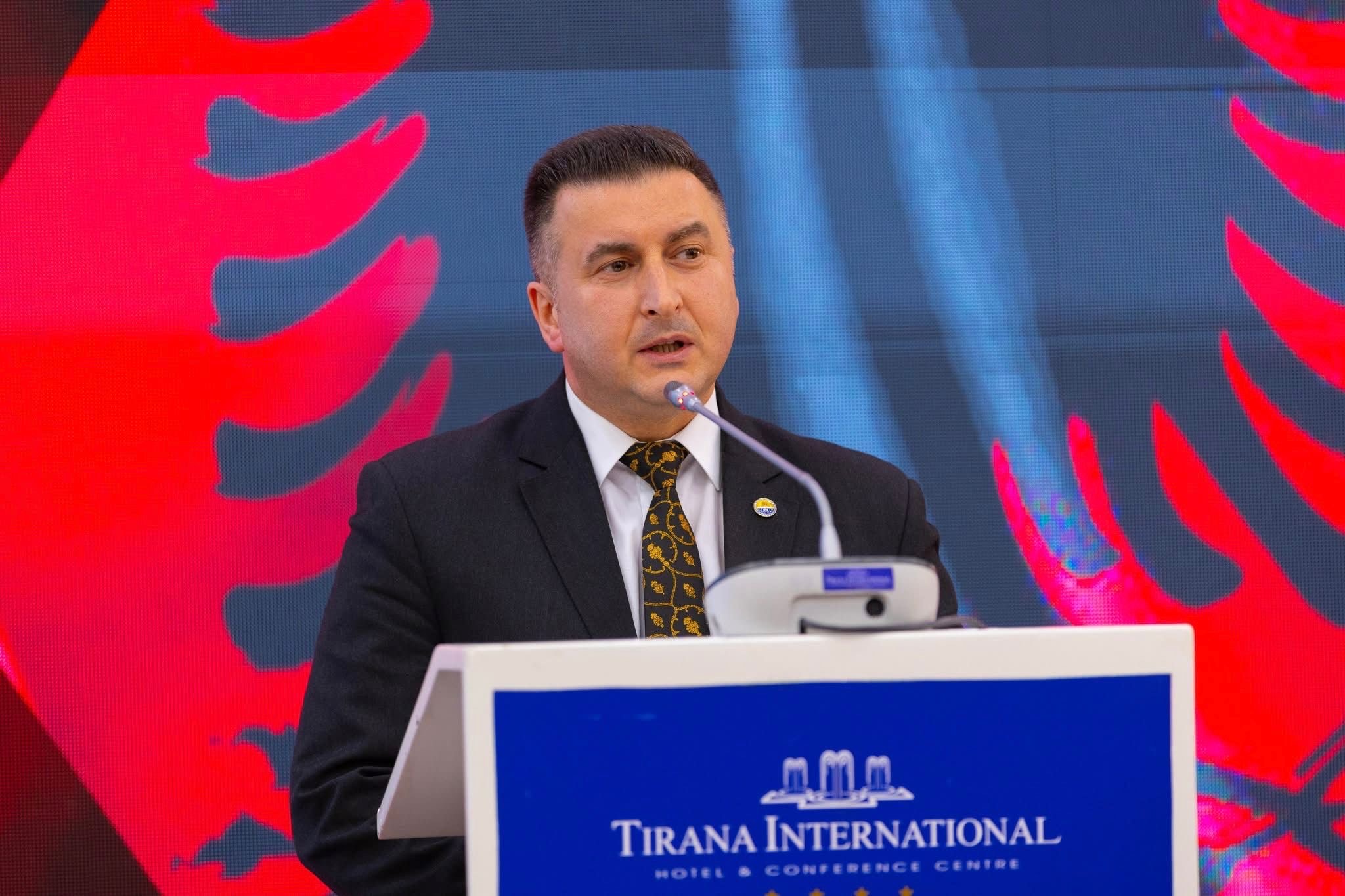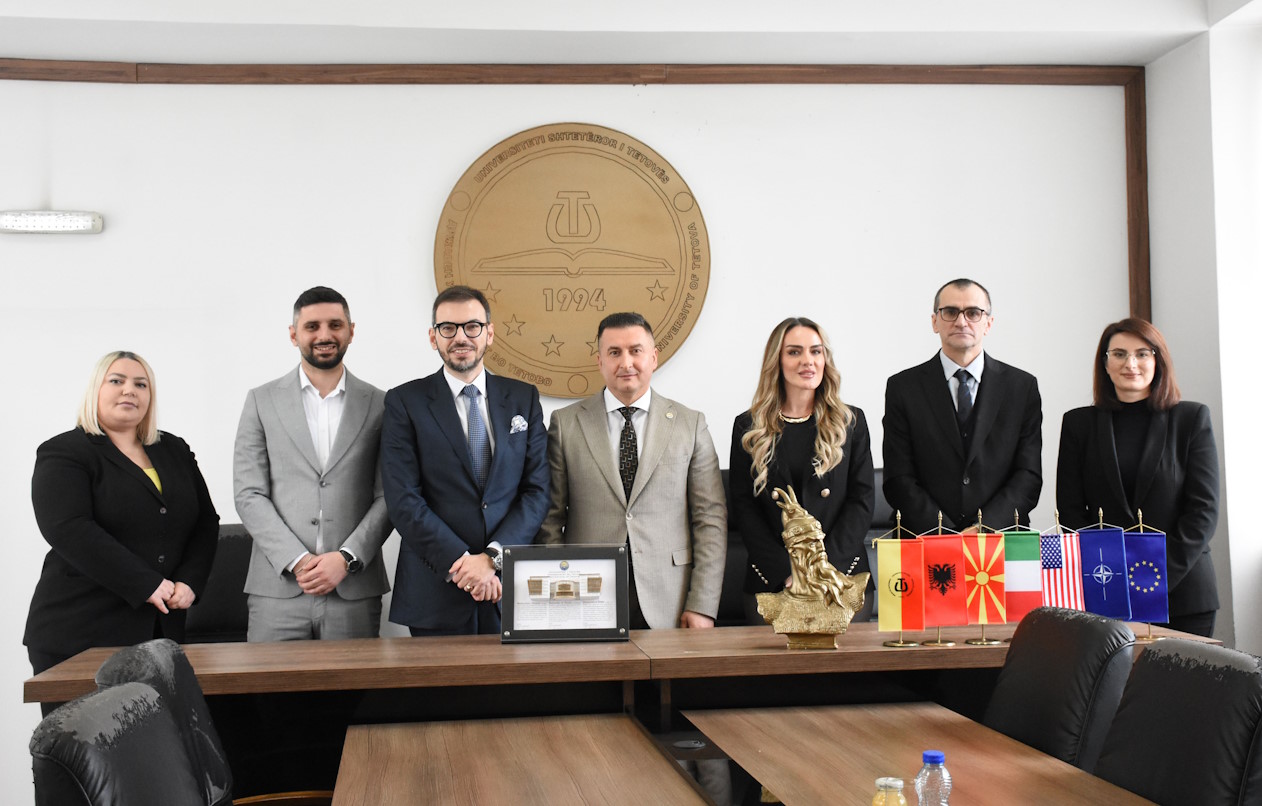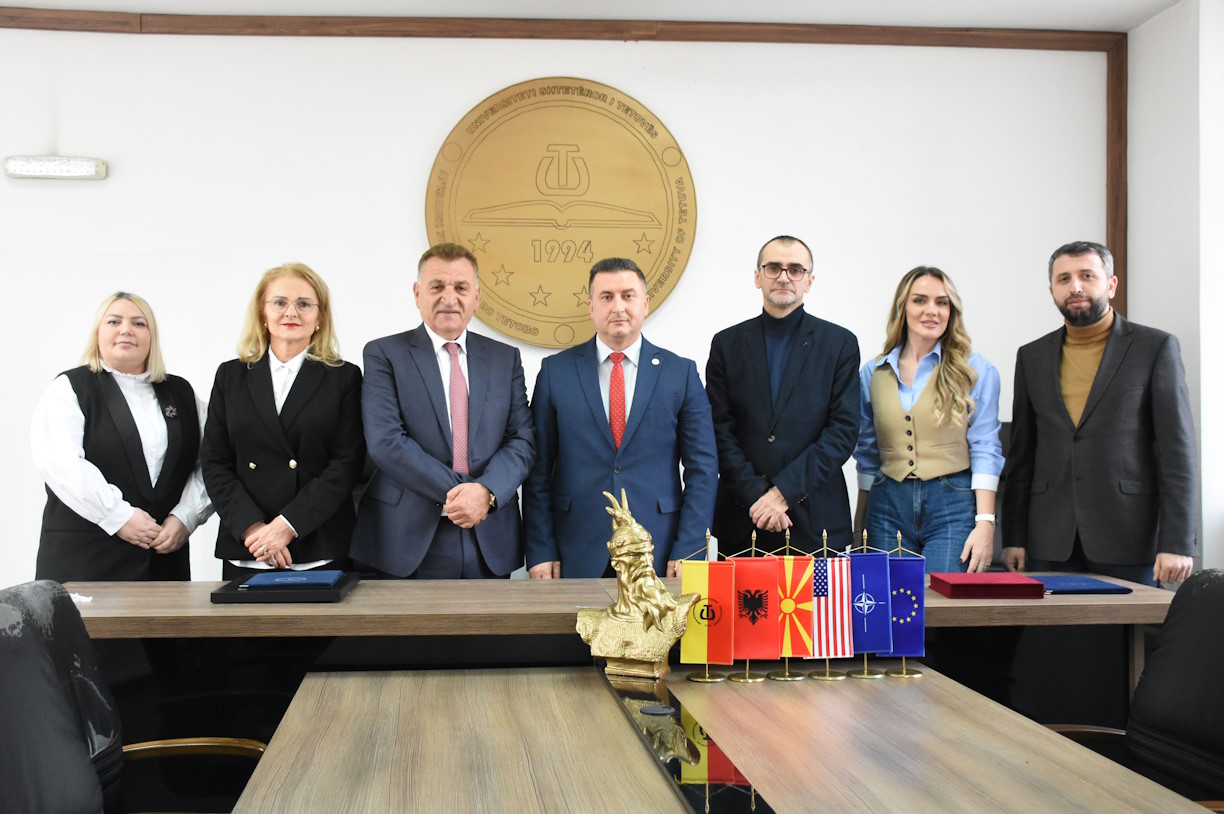At the University of Tetova was held the Third International Conference of Center for Peace and Transcultural Communication with the topic: “The Future of the Western Balkans after Russian Aggression on Ukraine: What’s next? the “Mother Teresa” Peace and Humanism Prize was awarded to humanist and human rights activist, Mrs. Sonja Biserko, President of the Helsinki Committee in Belgrade, and to Professor Daniel Serwer from Johns Hopkins University.
On June 24, 2024, the University of Tetova, precisely on the International Day of Women in Diplomacy, awarded the “Mother Teresa” Prize for Peace and Humanism to the humanist Mrs. Sonja Biserko and Professor Daniel Serwer, who were also keynote speakers at the Third International Conference of the Center for Peace and Transcultural Communication.
The conference was declared open by the Rector of the University of Tetova, Prof. Dr. Jusuf Zejneli, who said: “The University of Tetova has always played a decisive role and has been a factor of stability in North Macedonia. Therefore, in honor of the jubilee year of the 30th anniversary of its foundation, this conference, apart from being a time imperative, was also a moral imperative because we are the ones who must show the way to peace and civilized values”.
In this event, which was attended by numerous personalities from the academic, diplomatic, intellectual, religious and social life, the Ambassador of Ukraine in North Macedonia, Her Excellency, Mrs. Laryssa Dir welcomed the initiative of the Center for Peace and Transcultural Communication in front of the audience and emphasized the importance of the collective support of Ukraine. Among other things, she said: “It is an honor and a privilege for me to be part of this International Scientific Conference at the University of Tetova. This event is a testament to the shared commitment to advancing peace, and as we gather today to discuss the future of the Western Balkans following Russian aggression in Ukraine, it is important to remember the essential role that institutions play in promoting peace and stability. That’s what you do! As Ukraine’s ambassador, I have seen firsthand how fragile peace can be and how important international support is in maintaining it. Ukraine has experienced great challenges in recent years, and in this difficult period, the support of the international community has been of vital importance. Conferences like these are excellent platforms to share ideas and build bridges of cooperation between different countries and cultures. In this context, I call on all of you to continue to support efforts for peace and stability, not only in your region but everywhere in the world. Every contribution, no matter how small, is important in building a better future for all of us. In conclusion, I want to express my sincere gratitude for the support that Ukraine has received so far,” said the Ambassador of Ukraine in North Macedonia, Mrs. Laryssa Dir.
The founder of the Center for Peace and Transcultural Communication, and the President of the UT Senate, Prof. Dr. Vullnet Ameti, elaborated in detail the procedure for awarding the “Mother Teresa” Prize for Peace and Humanism in front of those present. This prize has been a goal in his visions, as he himself says. Presenting the historical trajectory of the Peace Center from its foundation until today and the motivation behind this award, he emphasized that the Peace Center has played an important role in promoting peace and easing inter-ethnic relations.
“It is a special privilege for me to stand before you today as President of the Senate and founder of the Center for Peace. This conference has gathered the most brilliant minds to discuss security issues in the country and the region. Peace is not the absence of war but the presence of justice, security, and equal opportunities for all people. As the founder of the Peace Center, I have seen how international cooperation and civic engagement can make a difference. Our center has worked tirelessly to promote dialogue, educate new generations, and build bridges between different communities. Today, more than ever, we need a common commitment because global challenges such as wars, climate change, and migration require joint solutions and international cooperation. Let us use this conference as a starting point to strengthen our efforts and create a fairer world for all. In the wake of this conference, I want to emphasize that ‘Russian aggression in Ukraine is an open violation of international law and the sovereignty of an independent country. This illegal and unprovoked action has been massively condemned by the international community, so it is our duty to remain united in our support for Ukraine and unequivocally condemn Russian aggression and raise awareness in all spheres of society”, said the President of the Senate of the University of Tetova, Prof. Dr. Vullnet Ameti.
Meanwhile, the Director of the Center for Peace and Transcultural Communication, Mr. Sc. Donika Kamberi, in her capacity as the coordinator of the conference, said: ‘Several years have passed since I began running this center, and during these years we have organized many discussion tables, addressed important issues, and published reports and scientific journals. But during these years, I have realized two things. The first is that PEACE is the most fragile concept that has ever existed in the human vocabulary; it is not something that stands in a vacuum but a process, and sometimes processes have the tendency to go backward. The second is that Churchill was right when he said that “the Balkans produces more history than they can consume. Many events have shocked humanity, but the war in Ukraine resonates deeply, especially with those who live in this fragile region of divergences and contradictions. Our region, with its painful history of conflicts and divisions, understands very well what war is and the losses that result from it. The human costs of war and the echoes of the past remind us of the urgent need to stand in solidarity with Ukraine and strengthen the path of EU integration and the Transatlantic vision,” said Mr. Sc. Donika Kamberi.
Professor Daniel Serwer, the main speaker of the conference, presented his reference titled “Is the Sun Setting in the West?’ He provided the audience with a brief study of possible scenarios involving the US as a superpower, highlighting the absence of concrete steps toward involvement in open conflicts and expressing a somewhat pessimistic view that the US could improve its foreign policy. He was impressed by the achievements of the University of Tetova and the Albanian nation, sentiments he expressed publicly”.
Meanwhile, Mrs. Sonja Biserko, President of the Helsinki Committee in Belgrade, also expressed a positive impression of the nation and the achievements of the University of Tetova and the values it conveys. In her reference titled “Russian Malign Influence in the Balkans”, which meticulously studies the trajectory of Serbia and Republika Srpska destructive roles as extensions of Russian policy in the Balkans, she emphasized that Russia views the Western Balkans as an opportunity to hinder their integration into the EU and NATO. Therefore, Russia’s actions in the Western Balkans aim to maintain a “status quo” and prevent NATO and EU expansion.
At the end of their speeches, the President of the Senate decorated the two prominent figures with the “Mother Teresa” Prize for Peace and Humanism, while also reading the motives on which the Senate of the UT awards the “Mother Teresa” Peace and Humanism Prize.
I have always felt a moral obligation to recognize the efforts and contributions of Professor Daniel Serwer and Mrs. Sonja Biserko. Therefore, in my first term in this position, the Senate of the University of Tetova unanimously approved my proposal, upon the request of the Center for Peace, to award the “Mother Teresa” Prize for Peace and Humanism, to these two outstanding individuals who have served as moral compasses for our university. This award honors their exceptional dedication to promoting peace and humanity. Your efforts have profoundly influenced the promotion of democratic values, respect for human rights, and the advancement of humanitarian principles. Through your actions, you have inspired others to join the noble cause of building a society that values peace”, – this is how concluded his speech Prof. Dr. Vullnet Ameti.
The academy concluded with an instrumental performance by the well-known violinist Shkëlzen Pajaziti.
